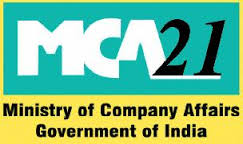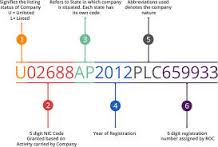 MCA had changed the structure of Additional Fees to be levied for delay in filing E Forms over the companies while filing their Balance Sheet and Annual Returns with concerned Registrar of Companies through MCA Portal. Such change of Additional Fee Structure encouraged the Corporate to file their returns as early as possible so that they can avoid the heavy additional fees. That has resulted in increase the percentage of filing within the due time.
MCA had changed the structure of Additional Fees to be levied for delay in filing E Forms over the companies while filing their Balance Sheet and Annual Returns with concerned Registrar of Companies through MCA Portal. Such change of Additional Fee Structure encouraged the Corporate to file their returns as early as possible so that they can avoid the heavy additional fees. That has resulted in increase the percentage of filing within the due time.
Pursuant to rule 12 of the Companies (Registration of Offices and Fees) Rules, 2014, following table of additional fees shall be applicable for delays in filing of the forms other than for increases in Nominal Share Capital
| Sl No. | Period of delay | Additional fees for the period of delay |
| 01 | Up to 15 days (sections 93,139 & 157) | One time |
| 02 | More than 15 days and up to 30 days (Sections 93, 139 & 157) and up to 30 days in remaining forms. | 2 times of normal filing fees
|
| 03 | More than 30 days and up to 60 days | 4 times of normal filing fees |
| 04 | More than 60 days and up to 90 days | 6 times of normal filing fees |
| 05 | More than 90 days and up to 180 days | 10 times of normal filing fees |
| 06 | More than 180 days and up to 270 days | 12 times of normal filing fees |
Further Note:
1) The additional fee shall also applicable to revised financial statement or board’s report under sections 130 and 131 of the Act and secretarial audit report filed by the company secretary in practice under section 204 of the Act.
(2) The belated filing of documents /forms (including increasing in nominal capital and delay caused thereon) which were due to be filed whether in Companies Act, 1956 Act or the Companies Act, 2013 Act i.e due for filing prior to notification of these fee rules, the fee applicable at the time of actual filing shall be applicable.
(3) Delay beyond 270 days, the second proviso to sub-section (1) of section 403 of the Act may be referred.





